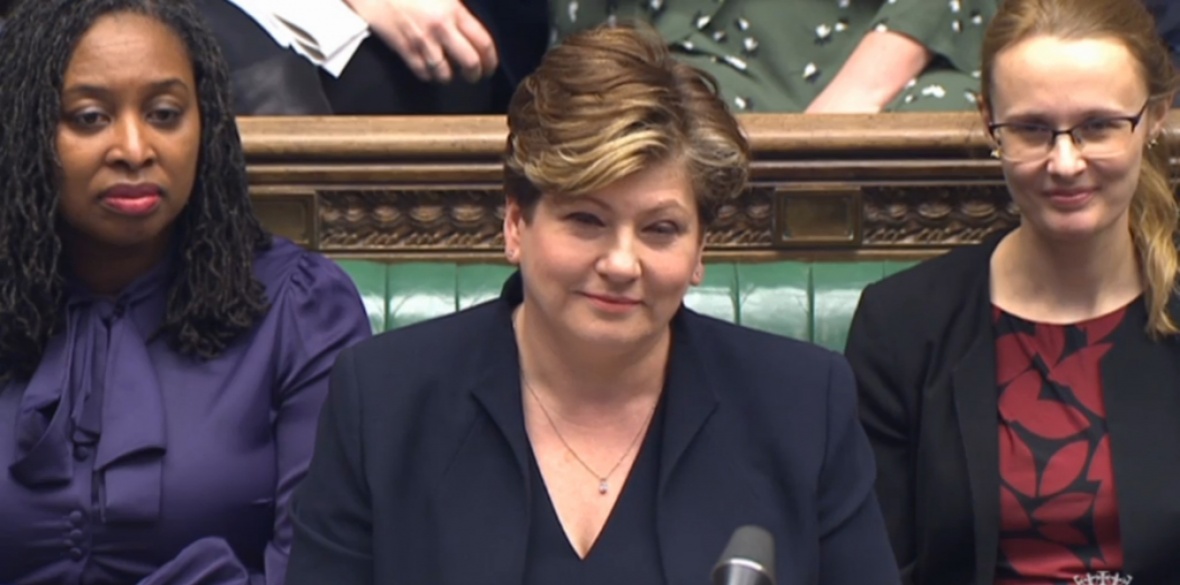This is the last article you can read this month
You can read more article this month
You can read more articles this month
Sorry your limit is up for this month
Reset on:
Please help support the Morning Star by subscribing here
SHADOW foreign secretary Emily Thornberry demanded an explanation from the government today after it was revealed that British spyware was used by the Honduran government in a brutal crackdown on anti-government protests.
Her letter to Foreign Secretary Boris Johnson asked for detail on whether the spyware sales went through the procedures for arms exports, which involves four government departments.
Ms Thornberry also sought clarity on what purpose British officials were told that the equipment would be used for and what steps were taken to confirm this.
The equipment in question is worth at least £300,000 and can help intercept and monitor a broad range of telecommunications including emails, phone calls and online messaging apps.
It has been reportedly used in Honduras’s sweeping clampdown on protests that followed November’s disputed general election result; thousands of police and troops swarmed protests, resulting in dozens of casualties.
Multiple exports appear to have taken place, including two licences for the export of “telecommunications interception equipment” in 2016 and 2017 and a further open licence of unknown value for other “information security equipment.”
Political repression in Honduras, including the monitoring of private communications, is well-documented. The country receives millions in state aid from the US.
Since the 2009 coup d’etat that ousted leftwinger Manuel Zelaya, allowing the still incumbent National Party to seize power, the administration has been accused of extrajudicial killings, election fraud and involvement with organised crime.
Ms Thornberry accused the British government of double standards, pointing to ministers’ lack of response to repression in Honduras — in contrast with vociferous condemnation of alleged state violence in Venezuela, where the left is being threatened by a putschist opposition funded by the US.
Labour MP for Brighton Kemptown Lloyd Russell-Moyle has tabled a written parliamentary question asking for the name of the firm behind the equipment sale.
A Department for International Trade spokesman said it did not license exports in cases that it assessed there was a “clear risk that the goods may be used for internal repression.”
Such sales are illegal under the 2008 Export Control Act.









